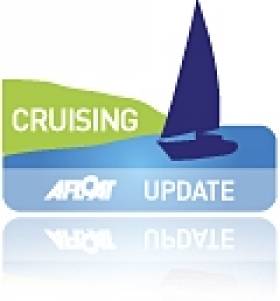Displaying items by tag: Islay,
Classic Malts Selection Whiskies Add Flavour to Cruising Event
The Malts Cruise is a two week summer sailing voyage, combining exceptional cruising around the remote Hebridean waters, with a journey of discovery into the world of Scottish single malt whisky. A programme of cruising in company and solo exploration is mixed with social events ashore and rendezvous afloat.
The Malts Cruise starts in Oban, with rendezvous in Tobermory and Loch Tarbert Jura, before finishing in Port Ellen. Parties, crew dinners and a ceiledh are mixed with visits to distilleries, plus briefings on Scottish wildlife, history and culture take place along the route. Between rendezvous yachts can follow their own itinerary, exploring ashore and afloat, alone or in groups.
Any vessel can take part, as long as it's crewed by two or more people. The event will be popular with bareboat and skippered charterers, as well as boat owners from the British Isles, Scandinavia and northern Europe. For 2011, places are limited to 50 boats. To date 19 boats are entered, both power and sail ranging from 14.6m to 9.8m.
Malts Cruise Key Dates:
08 July 2011 - cruise office opens in Oban Marina, Kerrera
09 July 2011 - welcome party in Kerrera
10 July 2011 - parade of sail in Oban Bay
21 July 2011 - final party in Port Ellen
Malts Cruise Cost:
No boat fee. £225 per person. Children under 18 are free.
Quotes from participants of Classic Malts Cruise 2009:
"Doing the cruise gave the incentive to cruise further than my normal cruising area, so was able to enjoy and experience the area, scenery and the abundance of wildlife we saw (minke whales, porpoises, dolphins and sea eagles to mention just a few). Many thanks - certainly one of the 'must do' cruises." Eriska (GBR) Hallberg Rassy 312
"It was a great way to get my first taste of cruising in Scotland." Blue Fox (IRL) Oyster 461
The Malts Cruise website is available at www.worldcruising.com/maltscruise
2011 Afloat Almanac: If you're contemplating a cruise, short coastal passage or even just studying for a Nav course this season, don't forget the 2011 edition of the Afloat Irish almanac (with Reeds Data). It covers the whole of Ireland, the Scottish, English and Welsh West coasts. Buy it online. CLICK HERE Easy!






























































